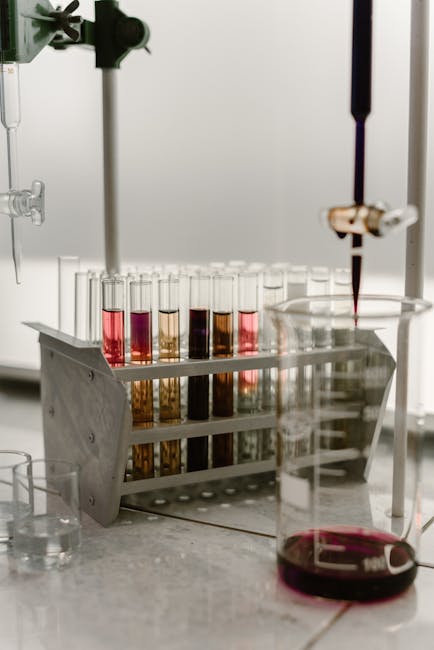
In recent years, fasting has surged in popularity as a health trend, promising everything from weight loss to improved metabolic health. But for those navigating the intricate journey of conception, a crucial question arises: How does fasting truly impact your fertility? Is it a secret weapon or a hidden hurdle? We’ve delved into the latest scientific research and consulted experts to bring you the unbiased truth.
Fasting, in its various forms like intermittent fasting (e.g., 16:8 method) or prolonged fasts, involves restricting food intake for specific periods. While the body’s adaptive response to short-term food deprivation can offer benefits like improved insulin sensitivity and reduced inflammation, its effects on the delicate hormonal balance required for reproduction are complex and nuanced.
Female Fertility: A Delicate Hormonal Dance
For women, fertility is intrinsically linked to a precise cascade of hormones. The hypothalamus, pituitary gland, and ovaries work in harmony to regulate the menstrual cycle, ovulation, and prepare the body for pregnancy. Experts caution that this system is highly sensitive to energy availability.
Dr. Sarah Miller, a reproductive endocrinologist, explains, “While mild intermittent fasting might not significantly disrupt ovulation in otherwise healthy women, prolonged or extreme caloric restriction can signal to the body that it’s not a safe environment for reproduction. This can suppress gonadotropin-releasing hormone (GnRH), which then impacts LH and FSH production, potentially leading to irregular cycles, anovulation (absence of ovulation), or even amenorrhea (complete cessation of periods).”
However, there’s a potential silver lining for specific cases. For women with conditions like Polycystic Ovary Syndrome (PCOS), which often involves insulin resistance and inflammation, moderate, supervised intermittent fasting might indirectly support fertility by improving metabolic markers. “If fasting helps a woman with PCOS manage her weight and insulin sensitivity, it *could* positively impact her ovulatory function,” notes Dr. Miller. “But this must be approached with extreme caution and under medical guidance, as the risks of hormonal disruption often outweigh potential benefits if not managed correctly.”
Male Fertility: A Less Explored Territory
Research on fasting’s direct impact on male fertility is less extensive but suggests similar principles. Sperm production (spermatogenesis) is a continuous process that requires a consistent supply of nutrients and energy. Prolonged periods of severe caloric restriction could potentially impact sperm quality, count, and motility due to nutrient deficiencies or increased oxidative stress.
On the flip side, some preliminary studies suggest that mild intermittent fasting might improve sperm parameters by reducing inflammation and oxidative damage, potentially leading to healthier sperm. “The key here is ‘mild’ and ‘intermittent,'” says Dr. David Chen, a urologist specializing in male reproductive health. “Extreme fasting is likely to be detrimental, but a balanced approach that supports overall metabolic health *could* be beneficial. More robust research is needed.”
The Crucial Nuance: It’s Not One-Size-Fits-All
The impact of fasting on fertility largely depends on several critical factors:
- Type and Duration of Fasting: Short, moderate fasts (e.g., 12-16 hours) are generally less disruptive than prolonged fasts (24+ hours) or severe caloric restriction.
- Individual Health Status: Existing conditions like being underweight, having a history of disordered eating, or pre-existing hormonal imbalances (e.g., thyroid issues) can make fasting risky for fertility.
- Nutrient Adequacy: During eating windows, it’s paramount to consume a nutrient-dense diet to ensure the body receives all essential vitamins, minerals, and macronutrients vital for reproductive health.
- Stress Levels: Fasting can be a physiological stressor. High stress levels, regardless of diet, can negatively impact hormonal balance and fertility.
Expert Consensus: Consult Before You Fast
The overwhelming consensus among fertility experts is one of caution. While a healthy, balanced lifestyle is crucial for optimal fertility, fasting is not a proven fertility treatment, and for many, it could be counterproductive. If you are trying to conceive or have concerns about your fertility, the most important step is to consult with a healthcare provider, ideally a reproductive endocrinologist or a registered dietitian specializing in fertility.
“Don’t view fasting as a quick fix for fertility challenges,” advises Dr. Miller. “Focus on foundational health: a balanced, whole-foods diet, adequate sleep, stress management, and appropriate exercise. Any dietary intervention, including fasting, should be discussed with your doctor to ensure it aligns with your specific health needs and fertility goals.”
In conclusion, while the allure of fasting for overall health is strong, its relationship with fertility is complex. For some, under strict guidance, it might offer indirect metabolic benefits. For many others, especially those already facing fertility challenges, it could inadvertently create roadblocks. The latest research underscores the importance of personalized medical advice over trending diets when it comes to the sensitive dance of reproduction.
